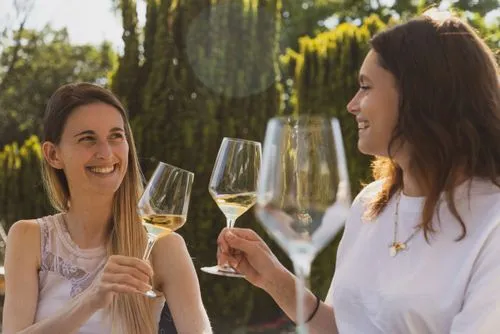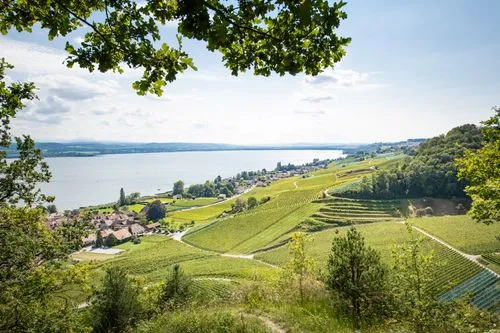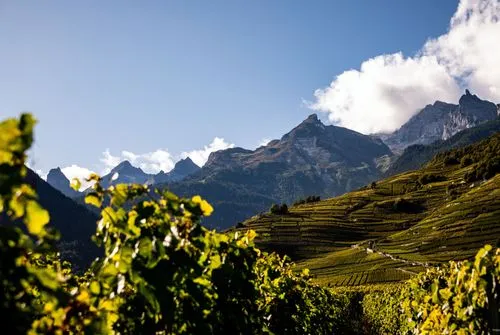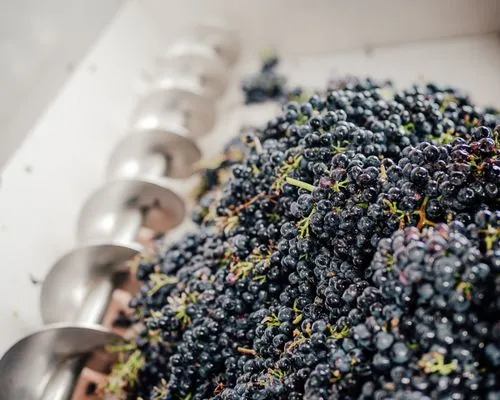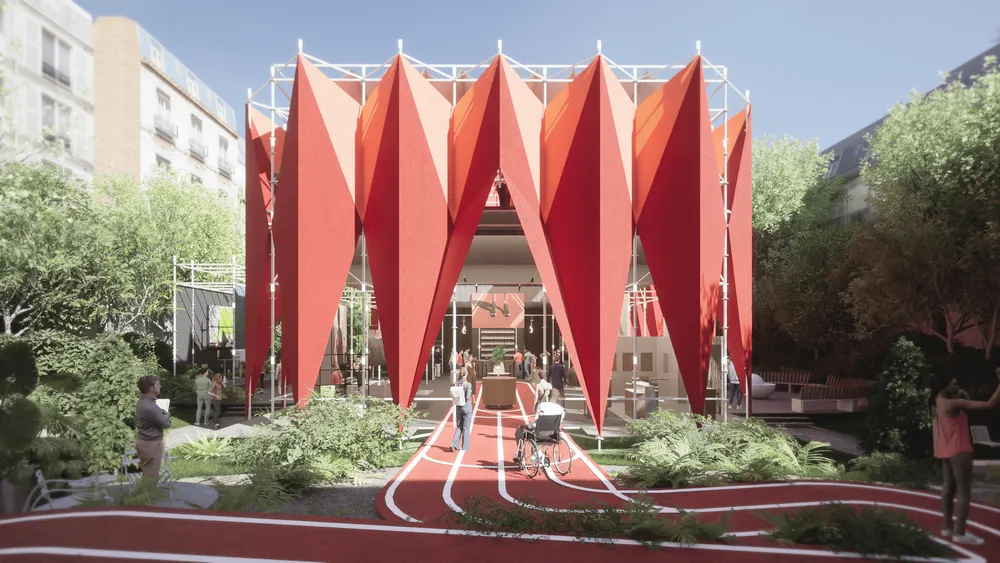2024 Olympic Games: Discover Switzerland by the glass in Paris
[]
During the 2024 Summer Olympic and Paralympic Games in Paris, the House of Switzerland welcomes the public in the beautiful garden of the Swiss Embassy. In the public viewing zone, sports enthusiasts can watch the award ceremonies and celebrate the medals won by the Swiss athletes together.
Meanwhile, Swiss Wine has made sure that an exquisite wine ends up in your glass for the toast: Thanks to a selection of the best wineries and wines in Switzerland. Visitors can experience the extraordinary diversity of Swiss wines.
All six wine regions of Switzerland are represented in the House of Switzerland – with the following selected wineries:
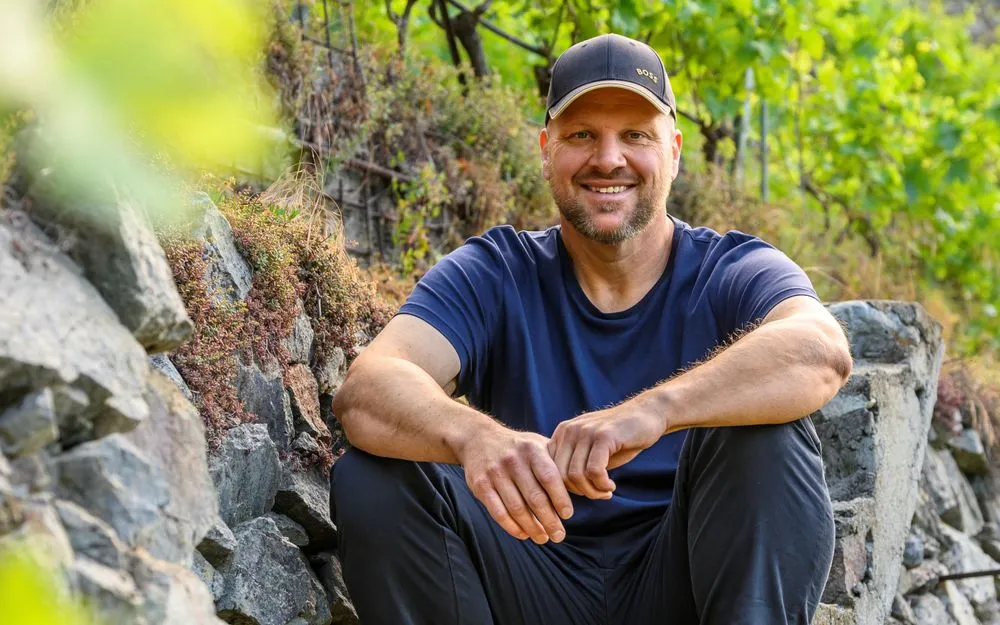
Cave des Amandiers
When Alexandre Delétraz founded the Cave des Amandiers in Valais in 2007, he took on an ambitious project: His vineyard consists of vertiginous and sometimes previously abandoned terraces. In order to unite the various vineyards into an eight-hectare estate, he had to acquire around 200 plots from 70 different owners. He replanted many of these plots with traditional Valais grape varieties. The majority of the vines are located on the gneiss and granite soils of the municipality of Fully.
Petite Arvine en Anzé 2022, Valais AOC
The Petite Arvine grape variety is a speciality from Valais. The wine is mineral and has a characteristically salty finish.
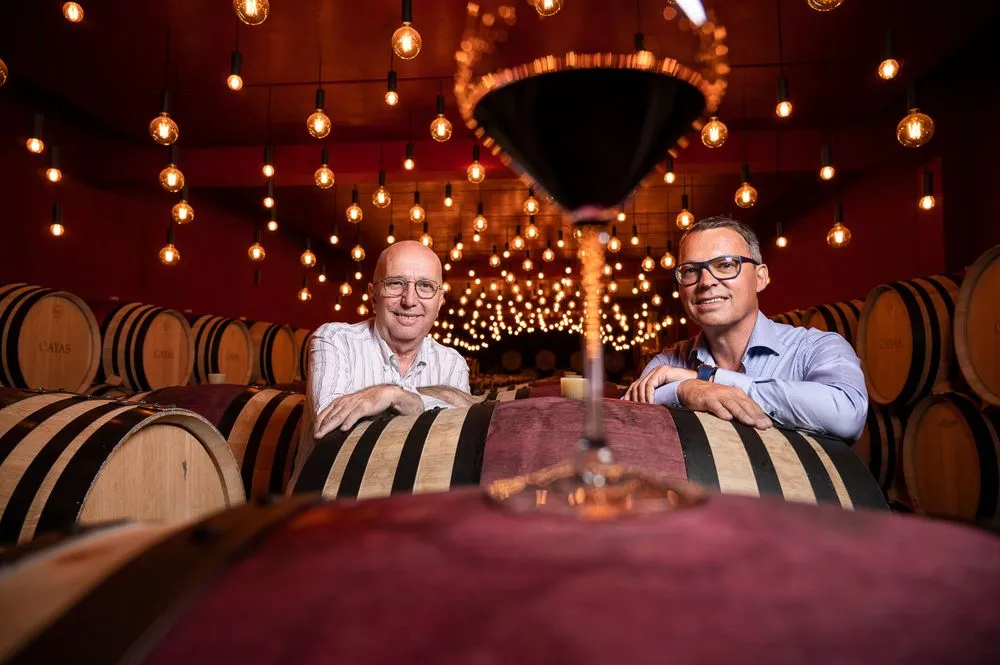
Jean René Germanier
Founded in 1896 in Vétroz, in the heart of Valais, the winery has always remained family-owned and is now run by Jean-René Germanier and his nephew Gilles Besse. The two experienced oenologists have created a whole series of top wines that enjoy an excellent reputation beyond Switzerland. They have pioneered sustainable and environmentally friendly agriculture and are now among the most important BIOSUISSE-certified wineries in the country.
Syrah 2022, Valais AOC
The Syrah grape variety produces wines with a deep red colour and racy tannins. It has pleasant notes of spices, black pepper and wild berries.
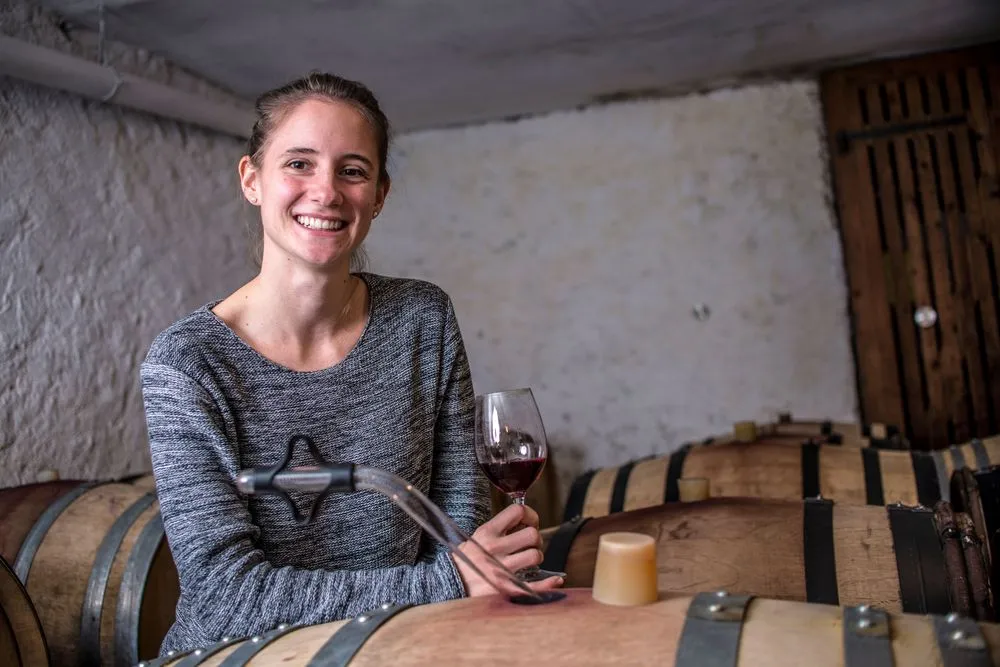
Domaine la Colombe
Laura Paccot is the fourth generation to run Domaine la Colombe. The vineyard is located in Féchy, a small village on the Vaud Côte with a view of Lake Geneva. Together with the La Colombe team, Laura Paccot cultivates all the plots of vines according to the biodynamic method, which her father Raymond gradually introduced in 1999. The soil is worked mechanically and without chemical herbicides. The vineyard has completely stopped using insecticides, which has allowed the return of natural beneficial organisms.
Bayel Grand Cru 2023, Chasselas, Féchy La Côte AOC
In Vaud, the Chasselas grape is the undisputed queen. Chasselas wines show off the terroir to their best advantage and offer a subtle yet very broad range of flavours.
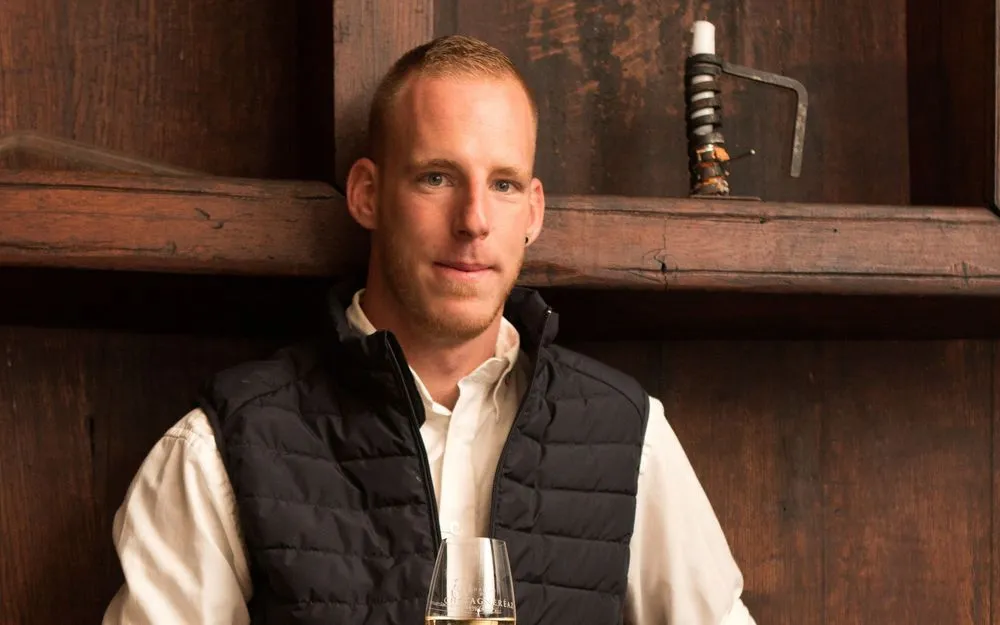
Schenk
The magnificent Château de Châtagneréaz vineyard is located in the heart of Mont-sur-Rolle. The 14 hectares of the estate owned by the Schenk wine house are among the best-exposed sites in the whole of La Côte. The wines are vinified in large oak barrels in the impressive cellar of the château. The Châtagneréaz vineyards consist of heavy, loamy soils that produce a very structured white wine. A generous and elegant red wine is also produced from the same soil.
Château de Châtagneréaz, 1er Grand Cru 2022, Chasselas, Mont-sur-Rolle La Côte AOC
This elegant Chasselas is matured on the lees in oak barrels. It has a bouquet with notes of acacia honey and lime blossom.
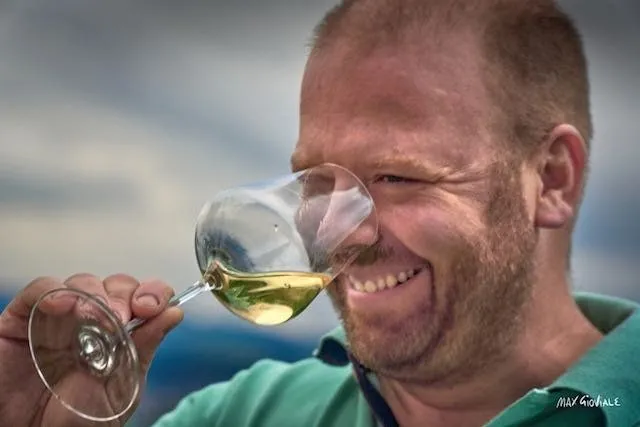
Wine By Jet
Wine by JET, a winery on the shores of Lake Zurich, epitomizes exceptional terroir wines. Run by Jonas Ettlin, Wine by JET celebrates nature by following a strict organic approach from the vine to the cellar. The vineyards in Uetikon and Kloten look back on a long history and wine tradition that is being continued with a forward-looking approach. Jonas Ettlin is uncompromisingly committed to quality in the vines and relies on natural processes in the wine cellar.
Vivace 2023, Räuschling, Lake Zurich AOC
The Räuschling grape variety produces light wines with citrus flavours and generally high acidity. The grapes for this selection come from vines over 60 years old from a top location.
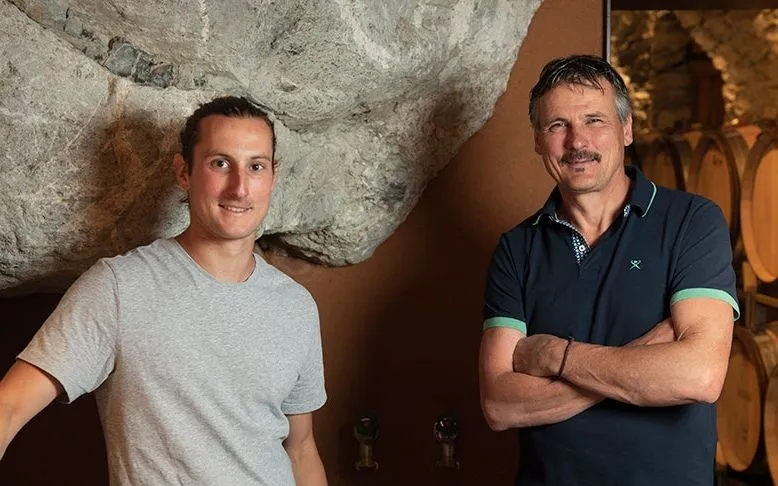
Weingut Familie Hansruedi Adank
Rezia and Hansruedi Adank have been running their winery in the Graubünden municipality of Fläsch with great passion since 1984. After his son Patrick studied and worked abroad, he returned to his parents' winery in 2018 to contribute his experience to the family business. He perfectly adapts his collected ideas and conceptions to the terroir with a clear goal: the wines should be profound with plenty of elegance, complexity and ageing potential.
Pinot Noir Tradition 2022, Graubünden AOC
Pinot Noir is the most widely cultivated grape variety in Switzerland, and the Grisons produces particularly first-class wines. Pinots are generally fresh and elegant with flavours of red berries.
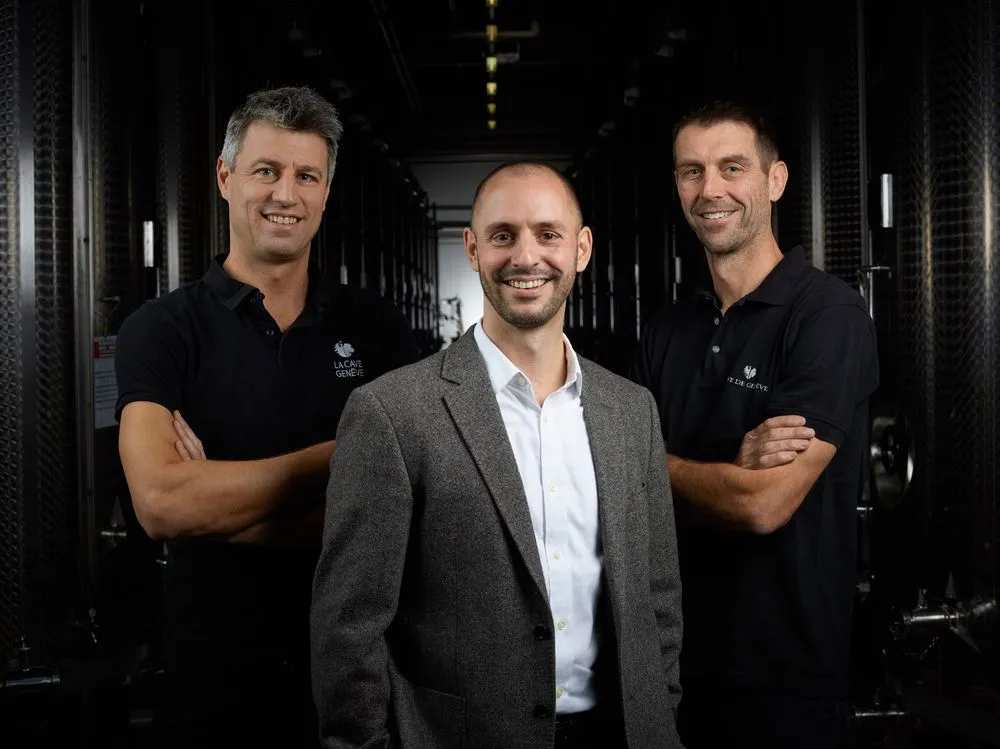
Cave de Genève
The eventful history of the Cave de Genève dates back to the end of the First World War. In 1929, several winegrowers from the region decided to found a co-operative. In the 1970s, it processed almost 80 per cent of Geneva's wine production. Today, almost 30 passionate winegrowers are united under the Cave de Genève. It is based in Satigny, the largest wine-growing municipality in Switzerland.
Baccarat 2022, Chardonnay, Genève AOC
This sparkling wine is made from Chardonnay grapes, which produce lively wines. The flavours vary depending on the terroir and ageing and can range from exotic fruits to toasted bread and butter.
Domaines Les Perrières
The village of Peissy in the heart of the Geneva vineyards has been home to the family winery Domaine Les Perrières since 1794. Today it is run by the eighth generation of the Rochaix family, who are passionate about passing on their wine-growing expertise. They have mastered the art of combining classic winemaking with the latest findings in oenology. The terroir, which is characterised by its clay soil, and the mild climate are responsible for the strength of the wines.
Aligoté de Peissy 2023, Genève AOC
In Switzerland, the Aligoté variety is mainly found in the Geneva region, where it is used to produce wines with a natural and refreshing acidity.
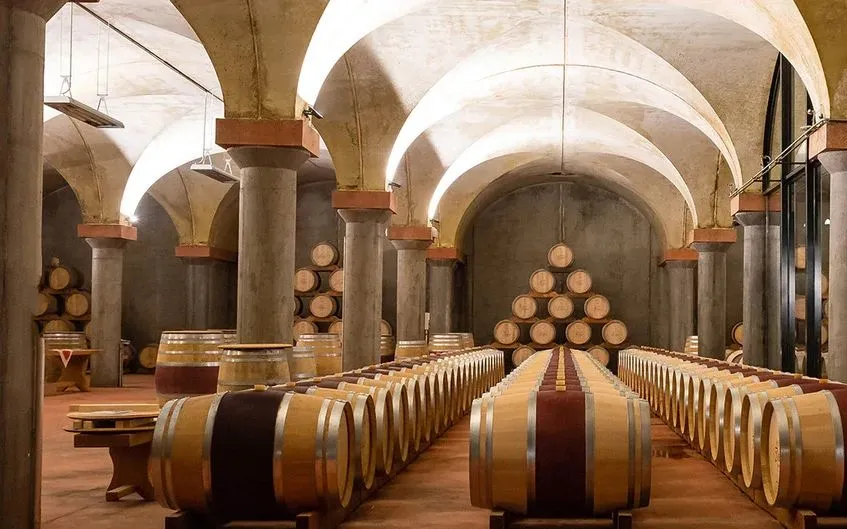
Vini e Distillati Delea Angelo SA
Under the passionate leadership of Angelo Delea and his sons David and Cesare, the company, founded in Losone in 1983, combines tradition and innovation. Thanks to the mild microclimate and fertile soil in Ticino, it produces award-winning wines such as Diamante, Carato Merlot, Carato Riserva and many more. With 20 hectares of vineyards and a team of over 40 employees, Delea strives to offer a unique experience at every tasting.
Carato 2021, Merlot, Ticino DOC
Merlot is the main variety in Ticino. It produces wines with notes of roasted coffee, roasted cherries, wild berries and chocolate. It has soft tannins and a dark colour with light purple hues.
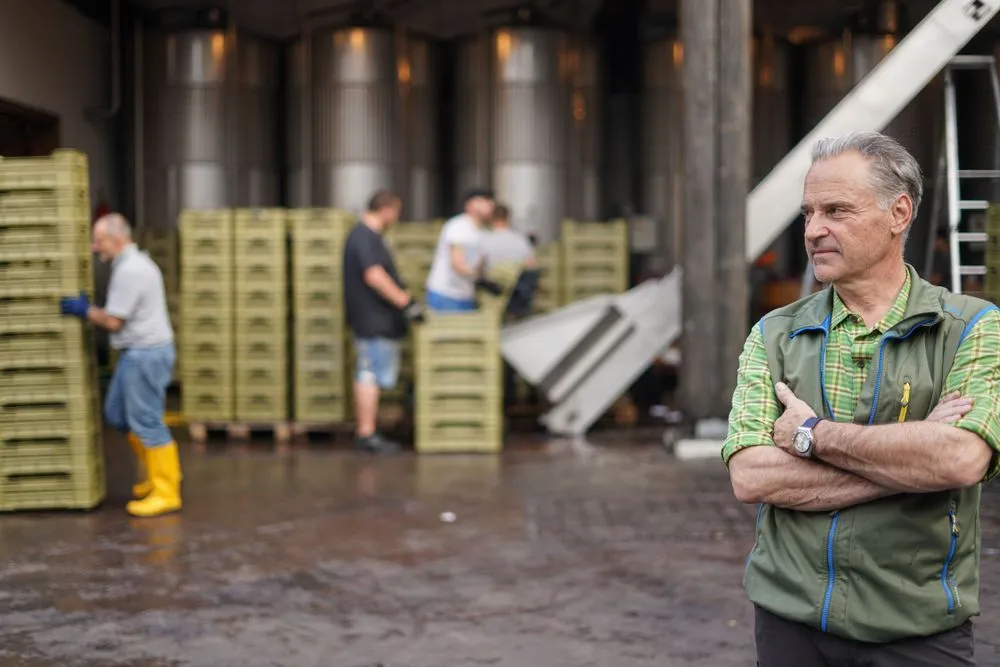
Vinattieri
Vinattieri Ticino was founded in 1985 in the Ticino municipality of Ligornetto, a region traditionally associated with viticulture and wine production. This corner of Switzerland south of the Alps benefits from a Mediterranean climate that favours viticulture. The Merlot grape planted on limestone soils comes into its own in the Vinattieri wines. Over the years, the winery has made a name for itself throughout the country for first-class wine production. Today it cultivates an area of 100 hectares.
Ligornetto 2021, Merlot, Ticino DOC
A full-bodied Merlot with a fruity and mineral flavour. Intense notes of ripe red fruit, pronounced hints of vanilla and spices, leather and herbs.
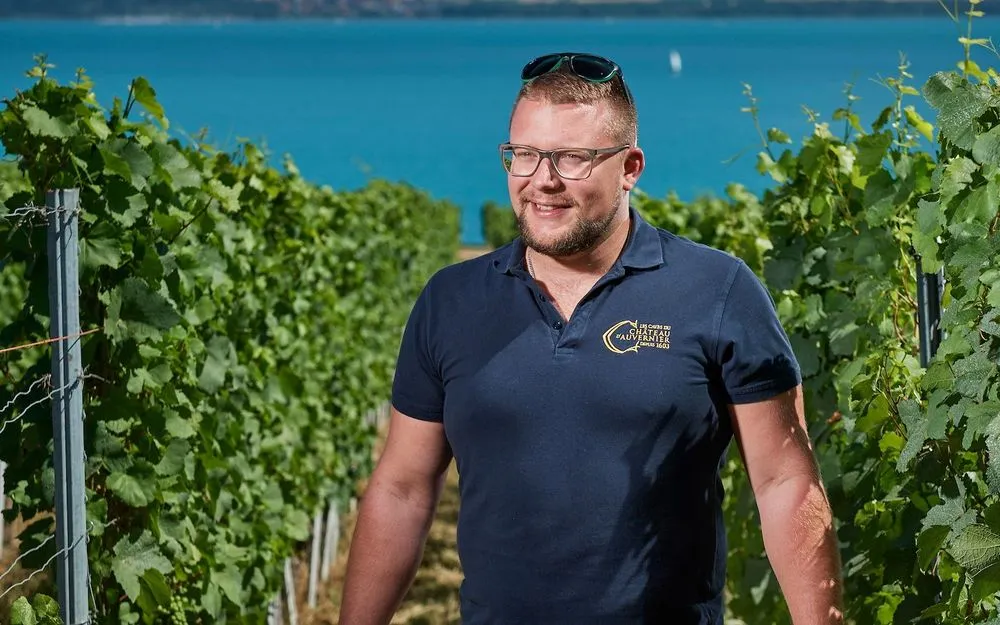
Caves du Chateau d'Auvernier
Since 1603, the Château d'Auvernier has cultivated a winemaking tradition that favours organic farming and respect for nature. Under the management of the 15th generation, represented by Henry Aloys Grosjean, the estate is striving for energy self-sufficiency by 2030. Located near Lake Neuchâtel, the estate cultivates 60 hectares of vines, 16 hectares of which belong to the Caves du Château d'Auvernier. With chalky soils and geographical proximity to the Burgundian terroir, this vineyard produces a diverse range of quality wines.
Non Filtré 2023, Chasselas, Neuchâtel AOC
This typical Neuchâtel wine made from Chasselas grapes is bottled unfiltered. Its fresh, floral, exotic notes ranging from citrus fruit to pineapple will amaze your nose.
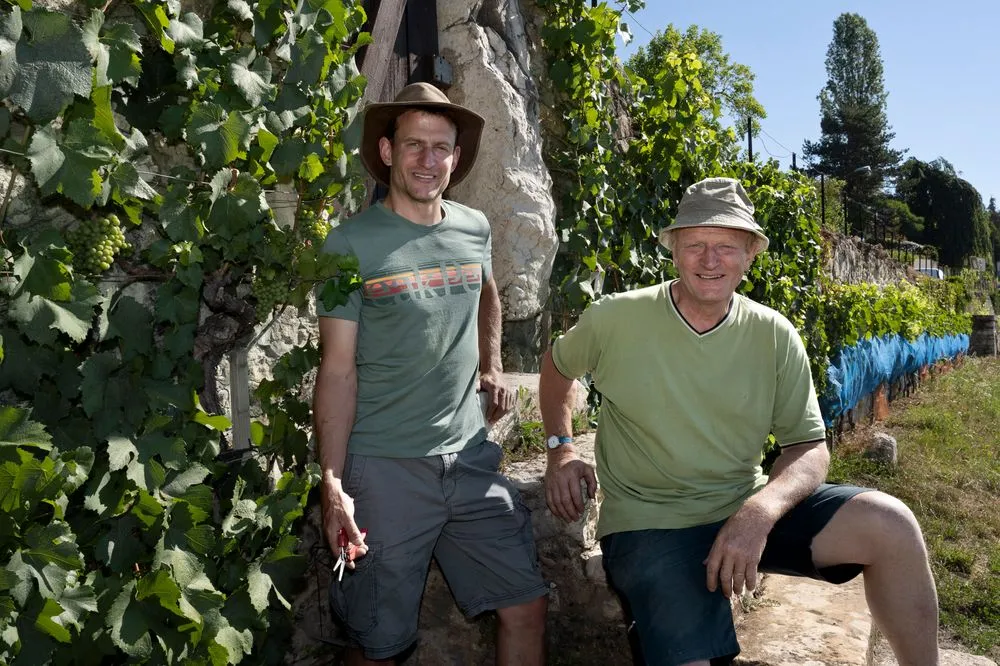
Maison Carrée
Jean-Denis Perrochet is the sixth generation at the helm of Domaine de La Maison Carrée. Together with his wife Christine, he has been running the business in Auvernier on Lake Neuchâtel since 2008. Their son Alexandre joined them in 2015. La Maison Carrée works according to biodynamic principles. As Jean-Denis Perrochet puts it: ‘Wine is and remains a natural product that is created in the vineyard. The task of the winegrower is to find the optimal balance between the vine and the grape.’
Auvernier Œil de Perdrix 2023, Neuchâtel AOC
Œil de Perdrix is a protected name in Switzerland. The Pinot Noir grapes are pressed after a light mash fermentation, which gives the wine its salmon colour and delicately tannic taste.
When
During the 2024 Olympic (24 July to 11 August) and Paralympic (27 August to 8 September) Games
Where
Swiss Embassy, 142 rue de Grenelle, 75007 Paris
To visit our site, you must be of legal drinking age in your country of residence.
